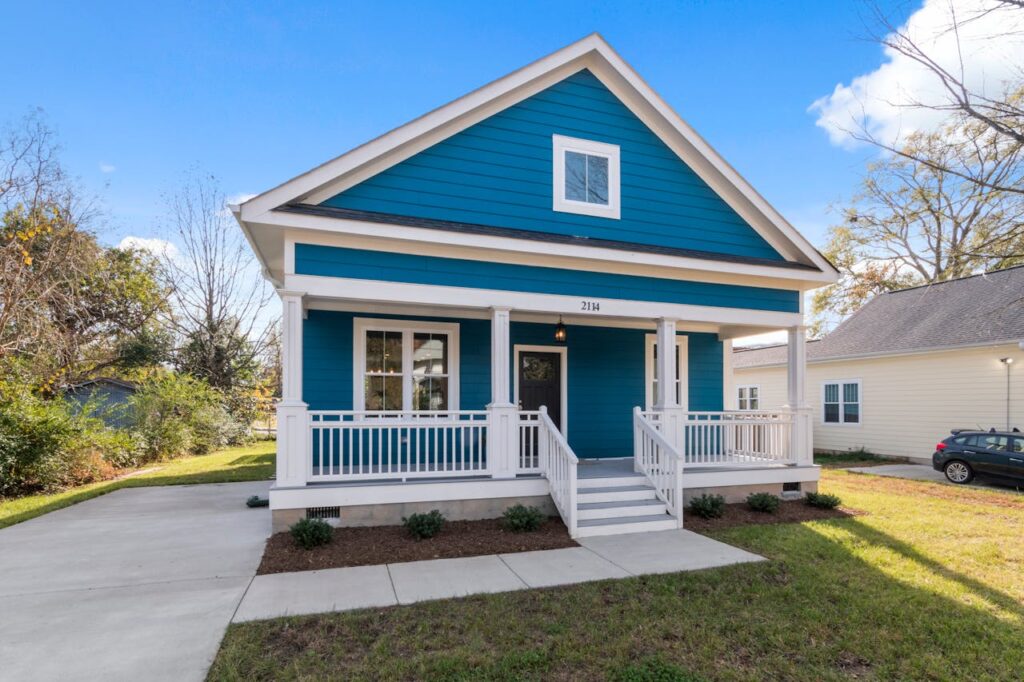Navigating the competitive housing market in Dallas-Fort Worth (DFW) can be daunting, especially when considering the traditional route of preparing a home for sale. With rising demand and fluctuating prices, many homeowners are exploring the option to sell their homes as is. This approach can save time, reduce stress, and even lead to significant financial benefits. In this comprehensive guide, we will explore the ins and outs of selling your home as is in DFW, offering practical tips, real-life examples, and expert advice to help you make an informed decision.
Understanding the “As Is” Market
The concept of selling a home as is refers to putting your property on the market without making any repairs or improvements. This trend is gaining traction in the DFW area due to various factors. Homeowners may lack the funds or time to invest in extensive renovations. Additionally, the rising costs of materials and labor can make the traditional selling process less appealing.
The Benefits of Selling As Is
Selling your home as is comes with several advantages, making it an attractive option for many homeowners. One of the primary benefits is the speed of the sale. Homes sold as is typically spend less time on the market compared to homes that require extensive staging and repairs. This is particularly beneficial for those who need to move quickly or are facing financial constraints.
Another significant advantage is the reduction in stress. Preparing a home for sale can be a daunting and time-consuming process. By selling as is, you can avoid the hassle of managing contractors, overseeing repairs, and dealing with unexpected issues that may arise during renovations.
Financially, selling as is can also lead to savings. While the sale price may be lower than a fully renovated home, the cost of repairs and improvements can be substantial. By avoiding these expenses, you may find that selling as is provides a better return on investment in the long run.
Challenges and Solutions
Despite its benefits, selling a home as is does come with its own set of challenges. One common issue is the perception that as-is homes are less desirable. Buyers may assume that a home sold as is has significant problems, which can deter them from making an offer.
However, there are practical solutions to this challenge. Transparency is key. Providing potential cash buyers with a thorough disclosure of the home’s condition can build trust and alleviate concerns. Additionally, offering a pre-inspection report can demonstrate that you are upfront about any issues and willing to negotiate fairly.
Another challenge is pricing the home correctly. An accurate valuation is crucial to attract buyers while ensuring you receive a fair price. Working with a real estate professional who has experience in as-is sales can help you set a competitive price that reflects the property’s true value.
- Relocating for Work or Personal Reasons
Many homeowners find themselves in a position where they must move swiftly due to job transfers, family emergencies, or other personal circumstances. Opting to sell “as is” circumvents the need for time-consuming and costly repairs and renovations, presenting an appealing solution. - Foreclosure Avoidance
Homeowners facing the threat of foreclosure seek a quick way to regain financial stability without the burden of a lengthy selling process. - Overcoming Unresponsive Markets
When a home lingers unsold on the market, selling it as is offers a straightforward exit strategy without further investment. - Escaping Mounting Costs
The financial strain of delinquent taxes, insurance, and maintenance fees can be alleviated by selling the property as is. - Adapting to Family Changes
Changes in family circumstances, such as a divorce or the need to downsize, can necessitate a swift and uncomplicated sale process. - Inheritance Challenges
Inheriting a property often comes with stress and uncertainty. Selling as is provides a simple resolution, avoiding the hassles of traditional home selling. - Managing Inherited Properties
For those overwhelmed by the responsibilities of an inherited property, especially from afar, selling as is offers a hassle-free solution, freeing them from maintenance burdens. - Tenant-Occupied Properties
Selling a tenant-occupied rental property as is simplifies the process, avoiding the difficulties of coordinating repairs and showings, which can lead to delays and conflicts. - Limited Repair Budgets
When financial resources are insufficient for major repairs or updates, selling as is becomes a practical option, allowing homeowners to sell quickly without additional investment. - Streamlining Sales with No Contingencies
Selling as is translates to a straightforward transaction, free from negotiations or contingencies over repairs, benefiting both buyer and seller by simplifying the process. - Addressing Time Constraints
For sellers under tight deadlines due to personal or professional commitments, selling as is facilitates a faster closing, enabling them to proceed with their plans without delay. - Seeking Transparency
Homeowners desiring a clear and straightforward selling process find selling as is a transparent option that simplifies transactions. Let’s talk. - Aiming for a Quick, Hassle-Free Sale
For those requiring an expedited, uncomplicated sale, the as-is option is the ideal starting point to quickly move forward. Start here.
Types of Homes Typically Sold As-Is
Certain types of homes are often sold “as is” due to their condition, location, or the circumstances of the owners. Here are some common examples:
Distressed Properties
These homes may be in poor condition due to neglect, damage, or long-term disrepair. For sellers lacking the funds or time for extensive renovations, selling “as is” can be a practical solution.
Fixer-Uppers
Homes that require significant updates or repairs fall into this category. They attract buyers looking for investment opportunities, such as flippers or real estate investors, who are prepared to handle the necessary work.
Inherited Properties
Often, inherited properties come with emotional and logistical challenges. Heirs may prefer to sell these homes “as is” to avoid the hassle of dealing with repairs, especially if they live far away.
Foreclosure and Pre-Foreclosure Homes
Owners facing financial difficulties may opt to sell quickly to avoid foreclosure. Selling “as is” allows them to expedite the process and potentially salvage their credit.
Rental Properties with Tenants
Landlords looking to offload rental properties may choose to sell “as is” to bypass the complexities of tenant negotiations and property management.
Homes in Probate
Properties in probate often need to be sold quickly to settle an estate. Executors may find selling “as is” advantageous because it simplifies and speeds up the disposition of the property.
Homes with Code Violations
Some properties have existing code violations or issues that make them non-compliant with local regulations. Addressing these violations can be costly and time-consuming, making “as is” sales a more feasible option.
Selling these types of homes “as is” offers a straightforward path for owners needing to move on quickly, without the burden of extensive repairs or updates.
Preparing Your Home for Sale
Even when selling as is, some preparation can enhance your property’s appeal. Start with a thorough cleaning to ensure the home is presentable. Decluttering and removing personal items can help potential buyers envision themselves living in the space.
Minor repairs can also make a difference without breaking the bank. Fixing leaky faucets, patching up holes in the walls, and replacing broken fixtures can improve the overall impression of the home. While these repairs are minor, they show that the home has been cared for and maintained.
Staging can still play a role in an as-is sale. Simple and cost-effective staging techniques, such as rearranging furniture to maximize space and adding a few decorative touches, can make the home more inviting. Remember, the goal is to highlight the home’s potential without investing heavily in renovations.
Legal and Financial Considerations
Understanding the legal and financial aspects of selling a home as is is essential to ensure a smooth transaction. Disclosure laws vary by state, but in Texas, sellers are required to disclose known defects and issues with the property. Failing to provide accurate information can lead to legal complications and decreased buyer trust.
Financially, it’s important to consider the impact of an as-is sale on your overall financial situation. While you may save on repair costs, the final sale price will likely be lower than a fully renovated home. Working with a real estate professional can help you weigh these factors and determine if selling as is aligns with your financial goals.
Additionally, consulting with a financial advisor can provide insights into how the sale proceeds will affect your taxes and overall financial planning. Ensuring that all financial and legal bases are covered will help you proceed with confidence.
Selling Your Home “As-Is” in DFW
Looking to sell your home “as is”? Grapevine Capital specializes in quick, hassle-free transactions tailored to your needs. Contact us today to see how we can help you make a smooth transition. Let’s make your next move together.







